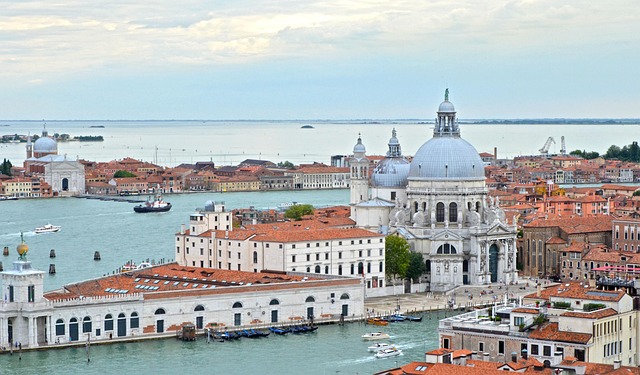Industrial parks are strategic real estate investments driving economic growth by clustering industries, attracting businesses with incentives, and enhancing regional vitality. Their prime locations near transportation hubs make them ideal for e-commerce's warehouse and distribution needs, offering flexible lease terms and significant returns. Global case studies show successful industrial parks revitalizing communities and fostering job creation through advanced infrastructure, making them powerful catalysts for long-term economic prosperity.
Industrial parks have become pivotal catalysts for economic growth, offering strategic locations, infrastructure support, and a thriving business ecosystem. In this article, we explore the multifaceted role of industrial parks in economic development, focusing on their impact as attractive real estate assets. We delve into investment opportunities, analyzing market trends and successful case studies showcasing how these parks drive local economies through strategic planning and sustainable practices. Discover how real estate within industrial parks is reshaping business landscapes globally.
The Role of Industrial Parks in Economic Development

Industrial parks play a pivotal role in economic development, acting as engines of growth for regions and countries alike. These specialized areas are meticulously designed to accommodate various industries, offering an array of benefits that contribute to the local and national economy. The strategic layout of industrial parks, coupled with advanced infrastructure, facilitates efficient operations and fosters innovation.
Real estate forms a crucial component of their success, as well-planned properties attract businesses seeking prime locations. The availability of land for development, combined with incentives like tax breaks and subsidies, makes these parks highly desirable for both established corporations and startups. As industries cluster in these areas, they create a ripple effect, generating jobs, stimulating local businesses, and enhancing the overall economic landscape.
Real Estate Opportunities and Investments within Industrial Parks

Industrial parks, with their focused development and infrastructure, present a unique opportunity for real estate investors. The strategic location of these parks, often near transportation hubs and urban centers, makes them highly desirable for businesses seeking efficient logistics and operations. This, in turn, drives up demand for industrial real estate within these parks, leading to lucrative investment prospects.
Investors can capitalize on the growing e-commerce sector by acquiring warehouse spaces or distribution centers within these parks. The expansion of online retail has significantly increased the need for storage and fulfillment facilities, making it a timely opportunity to invest in properties that cater to this demand. Moreover, industrial parks often offer flexible lease terms, allowing investors to adapt to evolving market needs and maximize their returns.
Case Studies: Successful Industrial Parks Boosting Local Economies

Successful industrial parks have become a driving force behind economic growth in various regions, serving as vibrant hubs that attract businesses and create thriving local economies. Case studies from around the globe highlight the significant impact these specialized real estate developments can have. For instance, in Southeast Asia, high-tech industrial parks have emerged as magnets for multinational corporations, leading to substantial job creation and technological advancements. These parks often offer state-of-the-art infrastructure, including advanced logistics facilities, research centers, and sustainable energy solutions, which attract businesses seeking a competitive edge.
In the United States, specifically in the Midwest, former industrial sites have been revitalized into modern business parks, transforming once-deprived areas into economic powerhouses. These renovated spaces cater to a mix of industries, from manufacturing to tech startups, fostering innovation and supporting local entrepreneurship. The success lies in the strategic planning and partnerships between governments, developers, and businesses, ensuring these industrial parks become integral parts of their respective communities, contributing to long-term economic prosperity.






